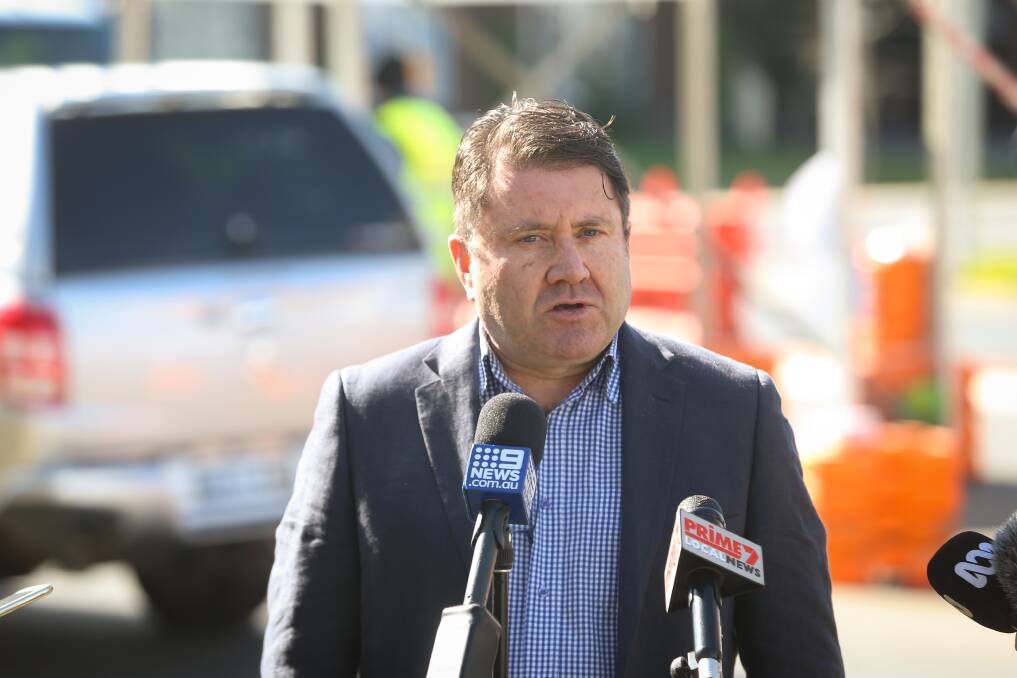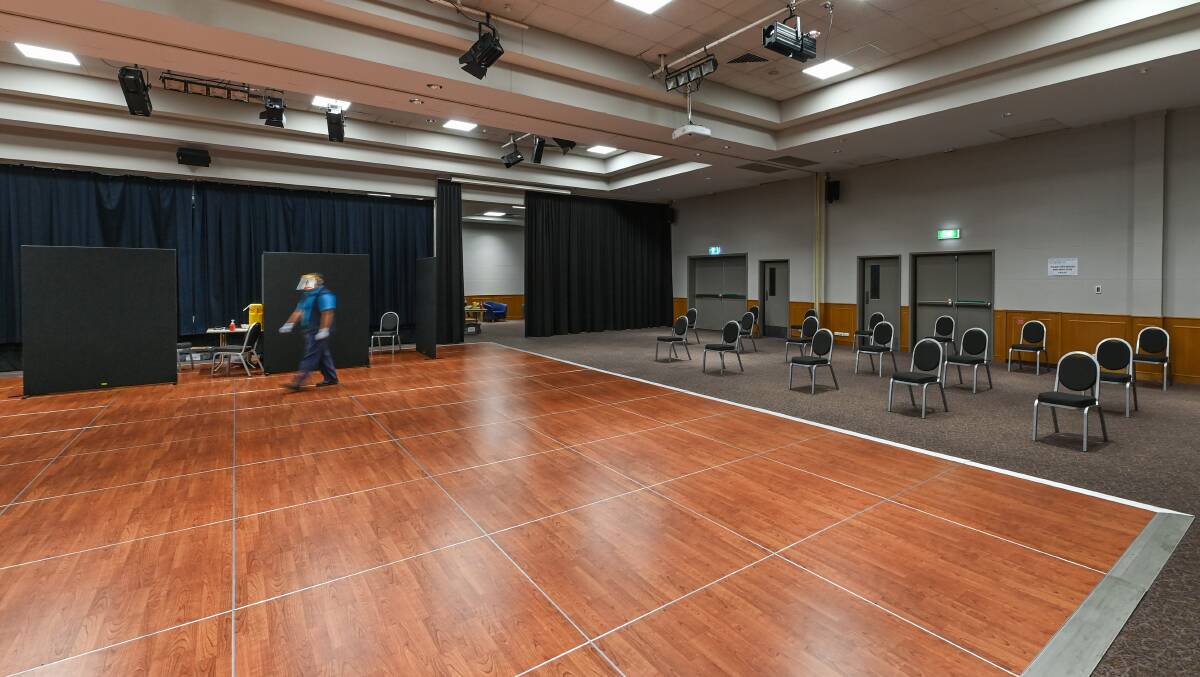
Some people in Albury-Wodonga and the Border region felt a rising sense of anxiety this week.
Subscribe now for unlimited access.
or signup to continue reading
For the first time in the pandemic, we experienced significant impacts on the health system, schools and businesses due to a COVID-19 outbreak.
Earlier this week, OzSAGE, a multi-disciplinary network of Australian experts, released its advice paper for protecting Australia's regional, rural and remote communities and health system from COVID-19.
This paper was a glimpse of what we saw unfolding in our region.
In writing it, OzSAGE never imagined that Albury-Wodonga could become a regional test case for "living with COVID".
During the opening-up phase of the National Roadmap, the unique pressures on regional, rural and remote Australia from outbreaks of COVID-19 need to be considered.
Regional health services do not have neighbouring hospitals a few minutes down the road, where they can direct patients.
They often rely on being able to send severely ill patients to city hospitals.
As regions open up to travellers, coronavirus will come and will cause more outbreaks. The question is, "how can we better manage this when it happens?".
RELATED CONTENT
Vaccination levels vary and have generally been lower than big cities to date.
Some populations in regional Australia, including elderly, socially disadvantaged, Indigenous and remote populations, have not had the same access to vaccinations through GPs or vaccination hubs.
Eighty per cent double-dosing of the over-16-year-old population equates to 64 per cent of the entire population, meaning close to four in 10 people are unprotected.
In the context of lower health capacity in regional, rural and remote communities, that carries significant risk.
Existing problems for regional, rural and remote health include reduced viral testing capacity, lower GP and hospital capacity, shortages of ICU beds and other equipment and lower capacity of ambulance transport services.
A big surge could cause major impacts on medical services due to service overload and health workers becoming sick or quarantined as close contacts.
There are risks of a "collateral" impact on non-COVID-19 medical services such as maternity, paediatrics, cancer, cardiovascular, ED and trauma.
Holiday periods have often placed additional pressures and demands on many regional, rural and remote health services.
Given the experience of Albury-Wodonga over the past week, how will health services cope if we have a COVID-19 outbreak during the upcoming December-January school holidays?
Vaccination is essential to prevent infection, illness and hospitalisation, but a VaccinesPLUS strategy is required because vaccination alone will be insufficient to control COVID-19 in a manageable way.
This includes safe indoor air by checking and adjusting ventilation of indoor spaces.
OzSAGE has developed some advice on this concept of Safe Indoor Air (Ventilation) that readers can use at home, in schools and workplaces. Mask-wearing in some settings will remain essential.
Given the lower medical capacity of regional health services, OzSAGE is calling for targets of high levels of vaccine protection (more than 90 per cent of 12-year-old-plus population double-dosed) in regional populations.
Our region is opening up already, but our advice to other states would be to consider a higher vaccination target before travel into their regions is allowed.
Similar policy is being used by Tasmania and New Zealand, and been called for by the National Aboriginal Community Controlled Health Organisation, the Aboriginal Medical Services of the Northern Territory and others.
Regions should open up LGA-by-LGA when vaccination targets are met. The same call has been made by Rural Doctors Association of Australia.
We need to be prepared to provide adequate surge workforce to regional, rural and remote health services.
We need to provide centralised coordination to enable rapid movement of severely ill patients (COVID-19 and non-COVID-19 diseases) to city hospitals as required. Transport services may need to be bolstered to avoid sick COVID and non-COVID patients being looked after in hospitals not set up to do so.

There should be additional assistance provided to local health services to manage COVID and non-COVID care, especially during holiday periods.
Too many times we see a "trickle out" of medical services from metropolitan to regional.
Now more than ever, we need to ensure enough regional access for treatment including adequate oxygen, anti-virals, monoclonal antibody, antibiotics supplies and adequate PPE as outbreaks occur.
Some people in our region reported feeling that calls for help were being ignored
- OzSAGE
Regional health, regional development and the regional and national economy are inextricably linked.
To manage better into the future, our region deserves a substantial injection of health resources on an annual basis, and we need a new regional hospital.
This week some people in our region reported feeling that calls for help were being ignored as the national media focus was on relaxing of restriction in Sydney and Melbourne.
In the weeks and months ahead, we need to feel that governments are responding to regional concerns and keeping us informed.
The COVID-19 pandemic highlights division and inequity. We can't afford to leave regional communities behind.
This piece was written on behalf of OzSAGE by Anna Davidson, of regional primary care, Port Stephens, and Associate Professor Craig Underhill, regional cancer specialist.

